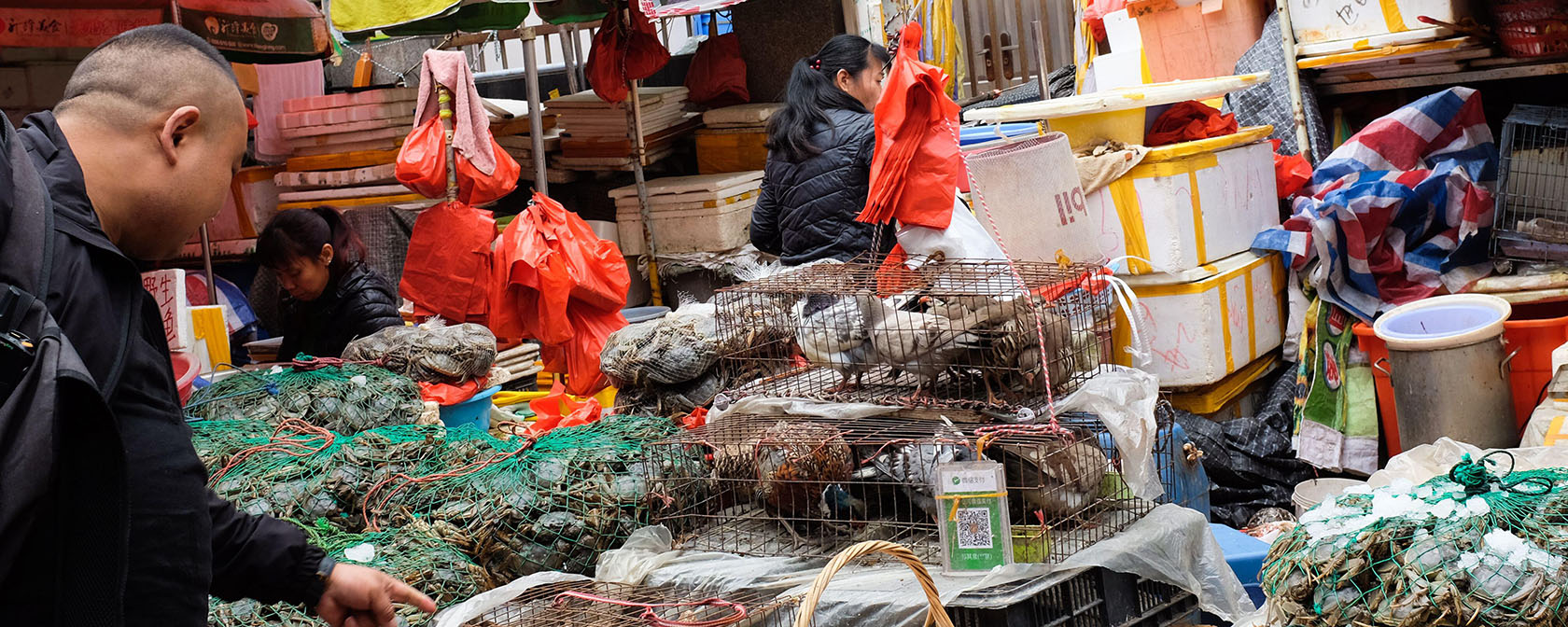By Sara Amundson and Kitty Block
Update (1/25/2021): A Senate version of the Preventing Future Pandemics Act was introduced today by Sens. John Cornyn, R-Texas, and Cory Booker, D-N.J. The House version, introduced earlier this month, now has 50 cosponsors.
With the coronavirus pandemic still raging, the urgency around preventing similar disease outbreaks in future by addressing the public health risks posed by live wildlife markets is greater than ever. Yesterday, on the first day of the new Congress, members of the U.S. House reintroduced a bill that would end all import, export and sales of certain wild animals for the primary purpose of human consumption and medicine in the United States.
The Preventing Future Pandemics Act of 2021, which we strongly support, was introduced by Reps. Mike Quigley, D-Ill., and Fred Upton, R-Mich. In addition to ending the trade in live wild animals at markets on U.S. soil, the bill would also build support for international efforts to halt the associated trade and trafficking of wild animals around the world.
The novel coronavirus is believed to have originated at a live wildlife market in Wuhan, China, where it likely jumped from a wild animal to a human. This is not, however, the only instance of a deadly disease emerging from our use and consumption of live wildlife. Severe Acute Respiratory Syndrome (SARS), bird flu and Ebola, among other diseases, have all been traced to the wildlife trade, spurring calls from global health officials to end these breeding grounds of cruelty and disease.
Live wildlife markets also cause tremendous animal suffering. These are typically filthy, crowded places where sick, injured and anxious animals are displayed in small cages. Once purchased, they are often slaughtered on-site, creating a perfect breeding ground for the spread of disease from animals to humans.
In the United States, food markets in San Francisco, New York and other communities can be found selling live pigeons, turtles and frogs, including red eared slider turtles and bullfrogs imported from China. By ending this trade here, our nation would position itself as a global leader in ending the mistreatment of wild animals and the resulting risk to human health around the world.
The bill introduced yesterday also targets the use of wildlife in traditional medicine, which propels demand for the capture, trade and slaughter of live wild animals and is a significant driver of wildlife trafficking in some of the world’s most imperiled species such as pangolins and tigers.
Other measures in the Preventing Future Pandemics Act would:
- Fund USAID programs related to biodiversity, wildlife trafficking, sustainable landscapes, and global health, food security and resilience to address the threats and causes of zoonotic disease outbreaks. This includes programs to support shifts to diversified alternative sources of food and protein in communities that rely on the consumption of wildlife for food security.
- Further facilitate law enforcement operations and enactment of economic, diplomatic or other penalties for countries that continue to facilitate wildlife markets or wildlife trafficking. This includes mobilizing 50 new United States Fish and Wildlife Service attachés to combat wildlife trafficking in countries that are known to facilitate or host wildlife trafficking operations.
The bill garnered immediate support from both sides of the aisle during the last Congress. When it was first introduced at the end of September, it garnered 151 cosponsors, and we hope to further build on that number in the new Congress. We will also be working towards the introduction of a Senate version of the bill.
Live wildlife markets exact a terrible toll on wildlife populations globally. Now, with nearly 1.9 million people dead worldwide of the coronavirus, including more than 350,000 in the United States alone, we need no more proof that they need to go. Please join us in urging your U.S. Representative to support the Preventing Future Pandemics Act of 2021 and to get this commonsense bill passed into law this year without delay.
Kitty Block is President and CEO of the Humane Society of the United States.




